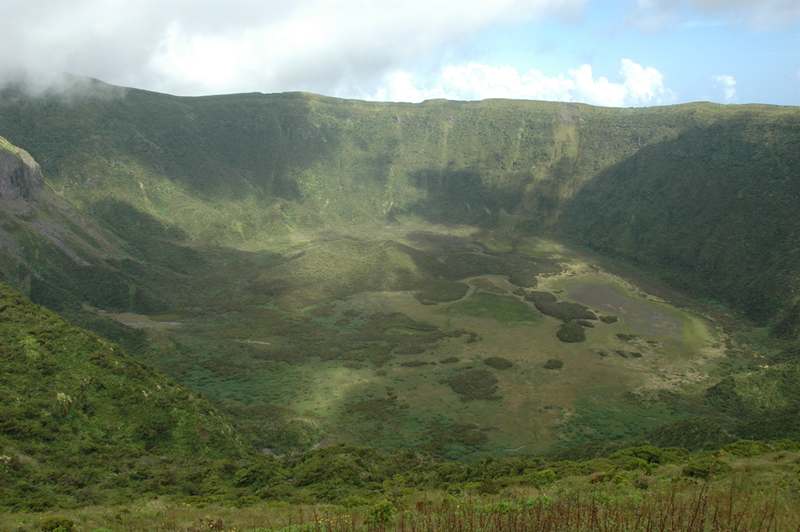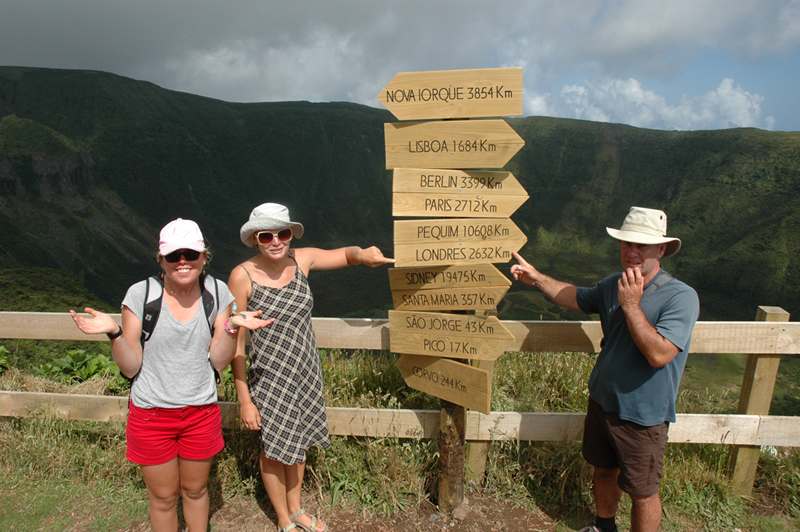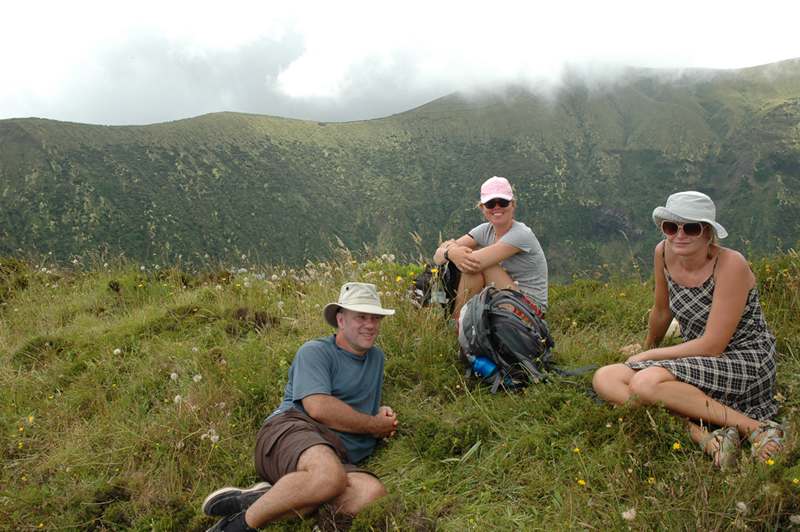Mountaineering through the hydrangea forests of Faial

A year afloat: to the Caribbean and back
Sam and Alex Fortescue
Sun 7 Aug 2011 17:40
|
Imagine a child's picture of a volcano: steep sides
rising to a point, then plunging back into a deep crater. Well, the children are
right - at least as far as the caldera on Faial is concerned. We taxied up to
the rim of the crater, then walked around its 7km circumference with amazing
views down to the sea on one side and plunging sheer into the mossy green
interior of the volcano on the other.
Sadly, there was no bubbling lava or steaming
sulphur in sight; all that happened 400,000 years ago and a range of local
greenery has taken root since then (including the omnipresent hydrangea). In the
Russian doll style, there is a second, tiny volcanic cone in the centre of
the main caldera. Some blurb informed us that they had entirely different
origins, the one being basaltic, the other being associated with explosive
pumice. There used to be a rainwater lake in the caldera as well, but a fresh
eruption at the west of the island fractured the rock and the lake drained away
overnight. This was in 1957, when an earthquake levelled much of the island, and
many inhabitants (such as our taxi driver) moved to America.
Saturday was a lazier affair. We watched a fleet of
classic French boats set off on the return leg of the Douarnenez to Horta rally,
cheering them past the breakwater. Then we repaired to a nearby beach of black
volcanic sand, where we bathed in 27 degree water. Chris built a sandcastle
shaped like a lighthouse, and we watched from the water as a small urchin of
swarthy extraction plucked up the courage required to kick it over. It took the
little thug about 15 minutes of air kicks, edging comically closer, then
stepping back innocently. He wouldn't rest until the building site had been
entirely levelled. Pah!
We're planning to put to sea tomorrow for the
final 1,400 miles back to Poole. There's a depression rolling in from the west
that will bring a solid southerly across the island - relief from the usual flat
calm inflicted by the Azores high. The forecast suggests that the
southerly will last for about four days before petering out into a series
of smaller highs and depressions floating around the area southwest of Ushant
(Ouessant for any French speakers). It's normally necessary to motor away from
the Azores, so this wind would set us flying on our way. If we left tomorrow, we
should be back in the English Channel ten days later, and fishing our
mooring in Poole around 20th August.
We have a little bit of reprovisioning to do from
the island's excellent supermarket. Due to the quantity of tins in the bilges
still, we're going to focus on fresh fruit and veg, cheese and yoghurt (yogurt
for any Dairy UK staff reading). The islands have a semi-tropical climate, which
means they grow things like bananas, pineapples and passionfruit as well as
standard salad fare and dull stuff like turnips. It's really a vegetarian's
paradise.
Before we set sail, I want to do some research on
catching tuna. We saw plenty of the beasts on the crossing from Newport, but
failed to catch one. I purchased a large purple squid 'cavitator' lure - one
that grazes the surface of the sea as you troll it, then sucks down a great
stream of bubbles - in Flores. So hopes are high, though I don;t want to leave
anything to chance. I also fear a mutiny if our lofty promises of tuna
sashimi with ginger and wasabi are not fulfilled. I don't think there's anything
in writing....
Tall ship getting tugged out of Horta
 An entrant in the whaleboat regatta
 Yesterday afternoon at a cloudy but hot Porto Pim
beach
 A scale model of the lost Atlantis with urchin,
foreground
 Breathtaking view from the lip of the
caldera
 Still a long way to go...
 Lunch on the volcano
 Where mountaineering and gardening
meet
 The view down the mountain
 |